News
278 students graduate from UG school of law, college of health sciences

Mrs Nana Adjoa Hackman addressing the congregation
A total of 278 students of the 2023 batch from the School of Law and College of Health Sciences, last Saturday, graduated from the University of Ghana, Legon.
There were 218 graduands from the School of Law and 60 from the College of Health Sciences (CHS) who were con¬ferred with degrees.

The CHS constituted the University of Ghana Medical School (UGMS) and the School of Biomedical and Allied Health Sciences (SBAHS).
In a speech the co-founder of Africa Legal Associates (ALA), Mrs Nana Adjoa Hackman said the advent of Artificial Intel¬ligence (AI) and other digital tools must be well embraced to enhance the efficiency of doctors and lawyers in the country.
“As a keen follower of the World Economic Forum, I believe we must be abreast of the times, by being strategic and adaptable in order to remain rele¬vant else the rapid development which is taking place shall equally retire us if we do not embrace it,” she said.
With the opportunity the Africa Conti¬nental Free Trade Agreement (AfCFTA) presents, she said Ghana must utilise her Anglophone or Commonwealth history as an advantage in building more uni¬form principles to resolve cross-border business disputes, similar to the same pace her francophone counterparts were following.
The valedictorian for the 2023 graduat¬ing class was Mrs Abigail Nakuor Wowolo from the School of Law with a final grade point average (FGPA) of 3.72.
She said during their first-year, their aspirations of becoming esquires and doctors in their academic journey looked bleak, however with determination and support from their lecturers and parents, they overcame such frights.
“Completing the first-year seemed impossible. It was a living nightmare,” she admitted.
The valedictorian however urged her colleagues not to be solely keen on winning cases in their field of study but seek justice and uphold the principle of fairness.
“We must recognise the immense re¬sponsibility that lies ahead of us, besides the perceptions we make shall have profound impact on the lives of others,” she said.
On her part, the Vice Chancellor of the University, Professor Nana Aba Appiah Amfo announced that a second series of ceremonies would take place in January 2024; for undergraduate and postgraduate students from the various disciplines in the four colleges of the University.
She also said that the Uni¬versity Council has approved the restoration of the Accra City Campus to a semi-autonomous unit of the University.
The establishment of the new campuses will bring the UG brand and standards to the Ashanti and Western regions, thus opening up more places for the admission of undergraduate students.
“Approval has been granted for the es¬tablishment of the Takoradi and Kumasi City Campuses of the University by the Ghana Tertiary Education Commission, and accreditation processes are almost complete for the campuses to start ad¬mitting students from the next academic year,” she revealed.
News
Mrs Dotse-Ametsi installed as Devt Queen
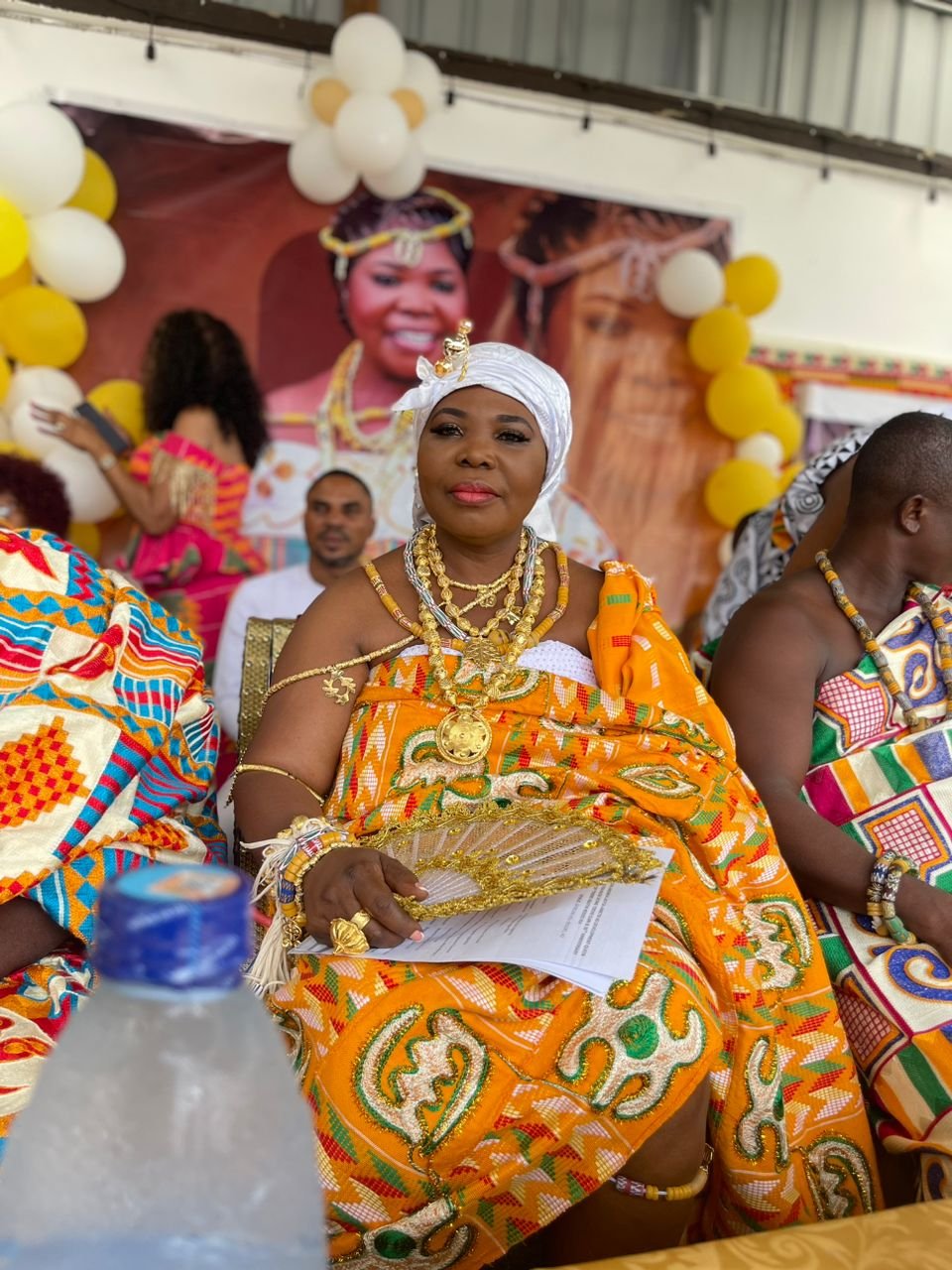
The Dome-Tsevie clan of Abutia-Kloe in the Ho West District of the Volta Region last weekend outdoored Mrs Joycelyn Akorfa Dotse-Ametsi as a Development Queen.
The ceremony which attracted traditional, political and business executives among others had Mr Bernand Mornah of the People’s National Convention Party as the special guest of honour.
Mrs Dotse-Ametsi with the ceremonial name of Mama Woe-Nenyo I, was tasked with liaising and spearheading development projects and educational reforms among others.
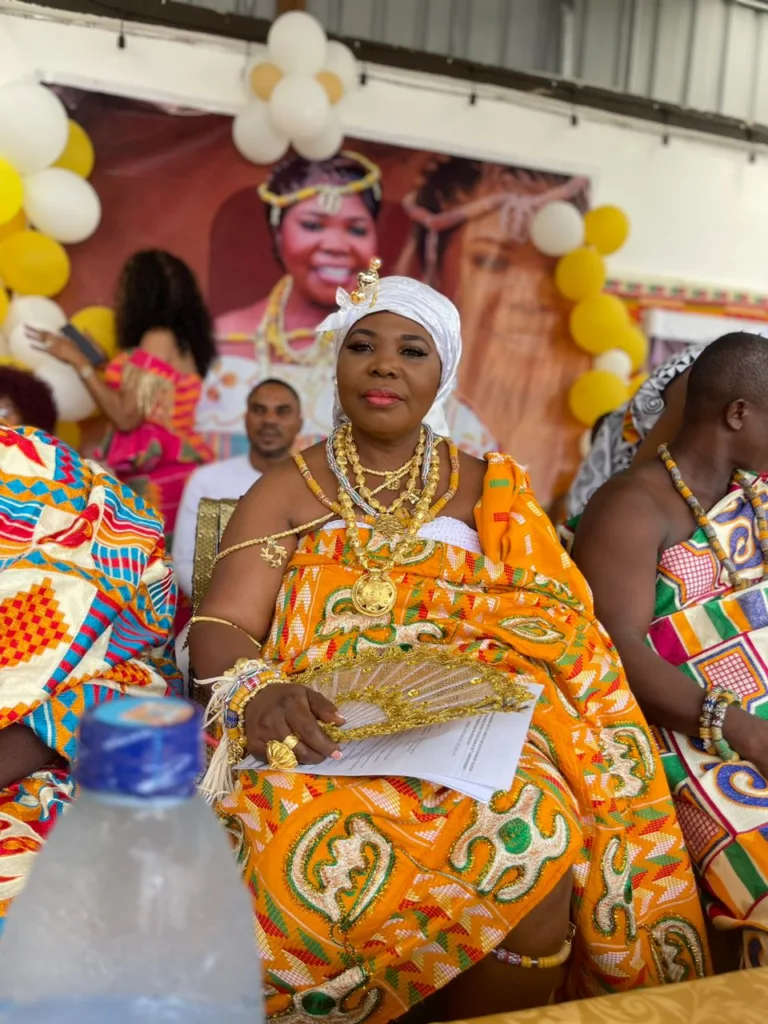

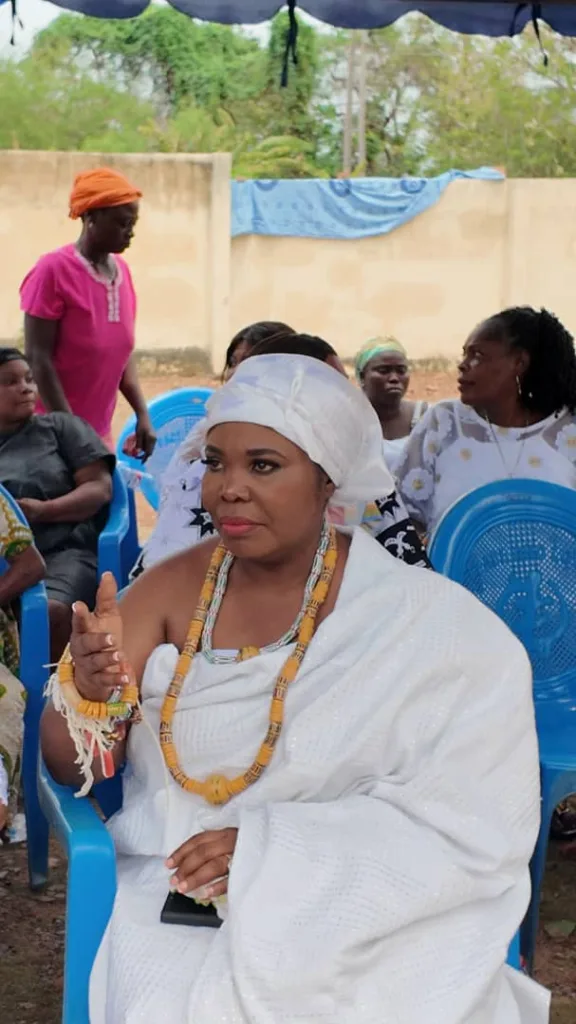

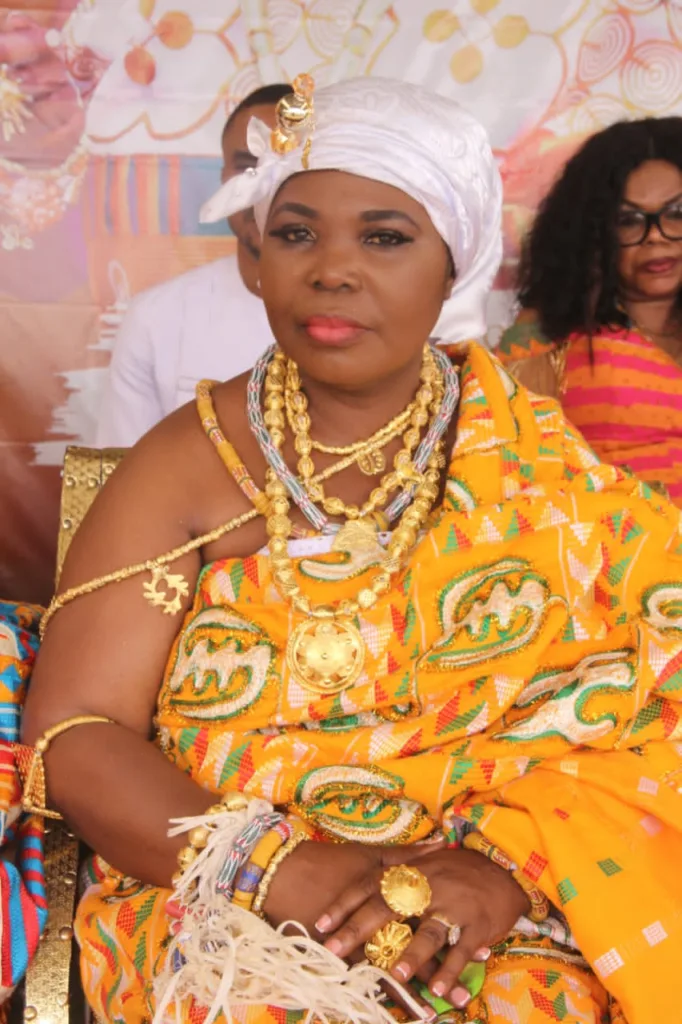

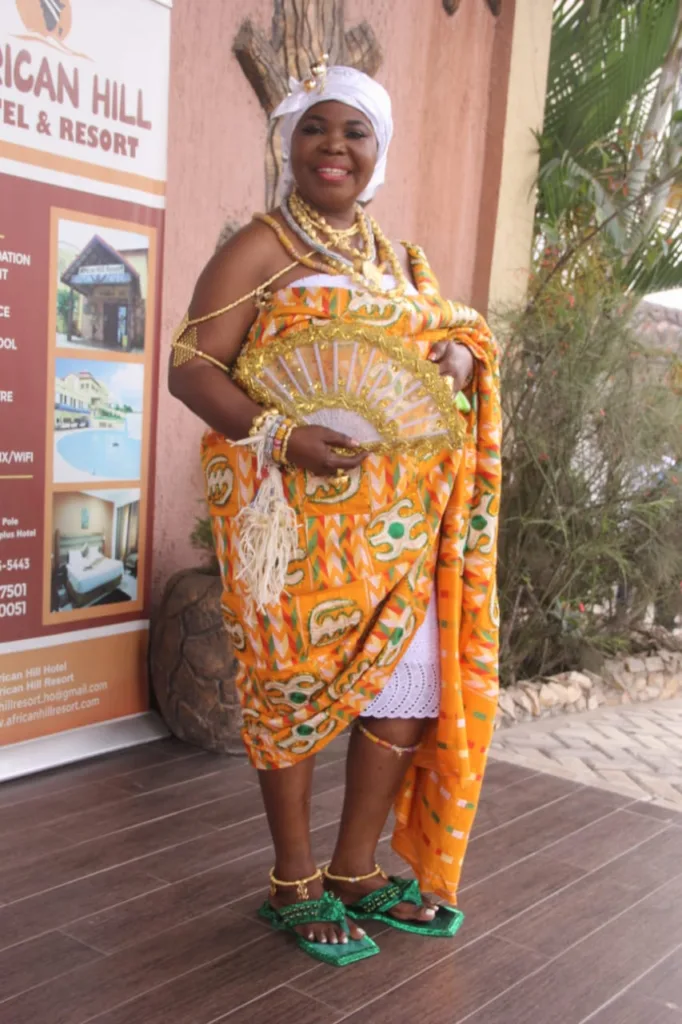
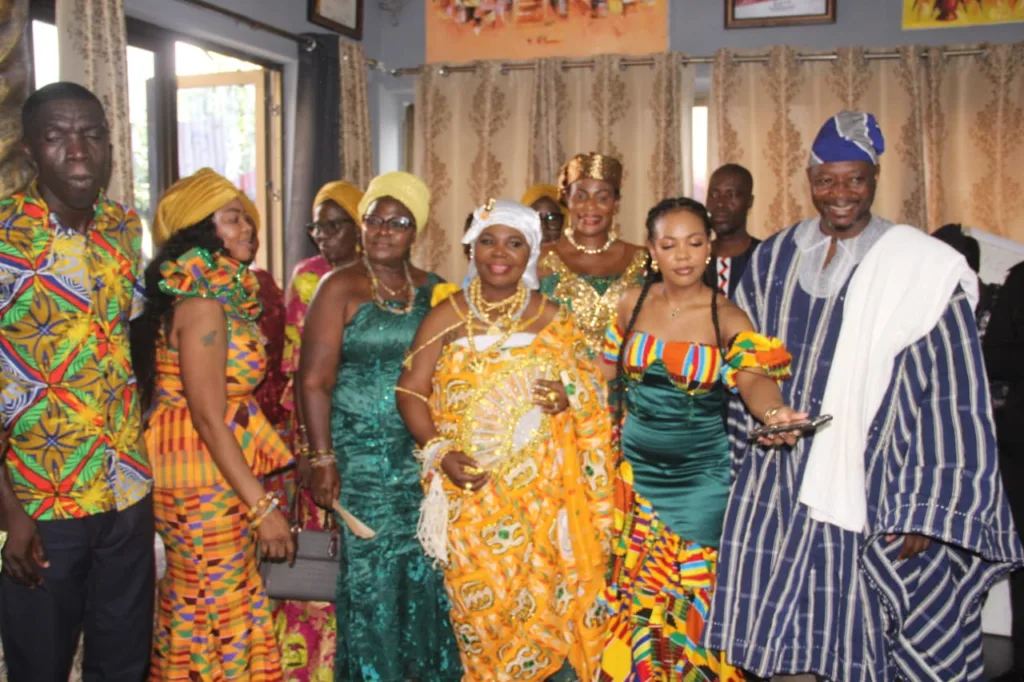
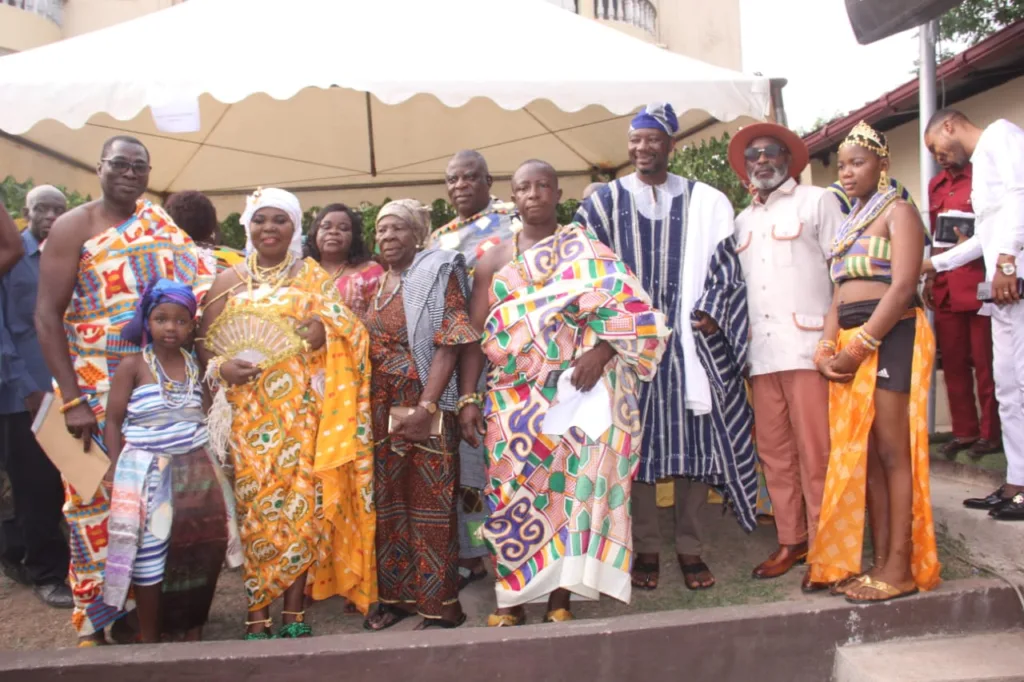

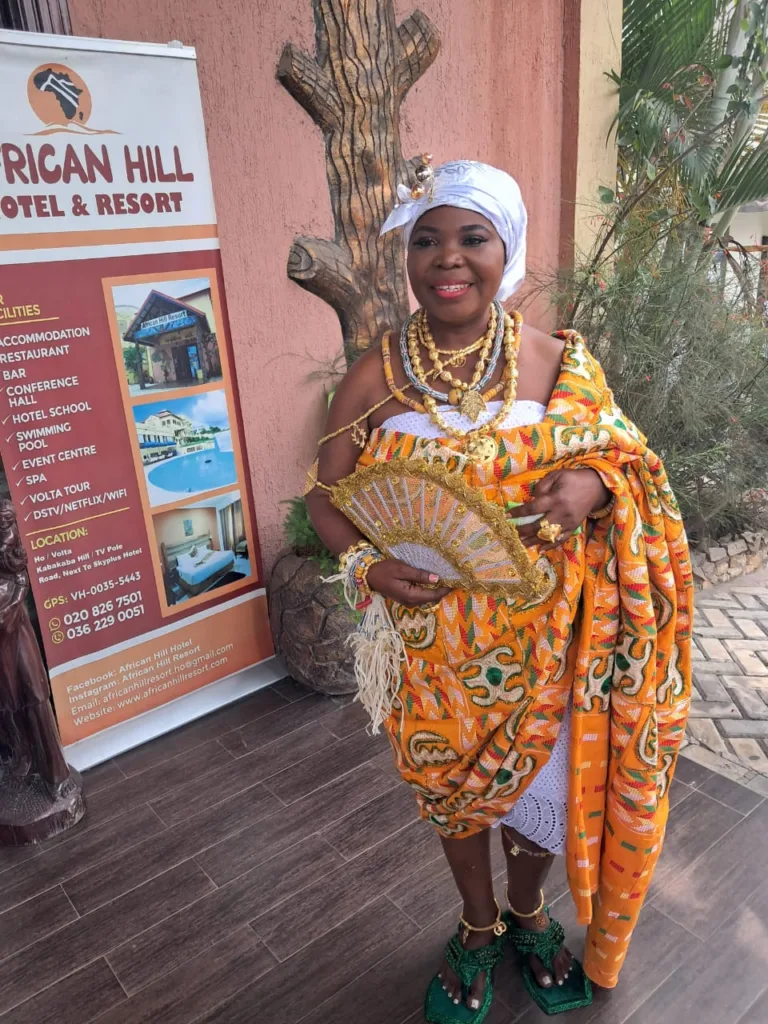
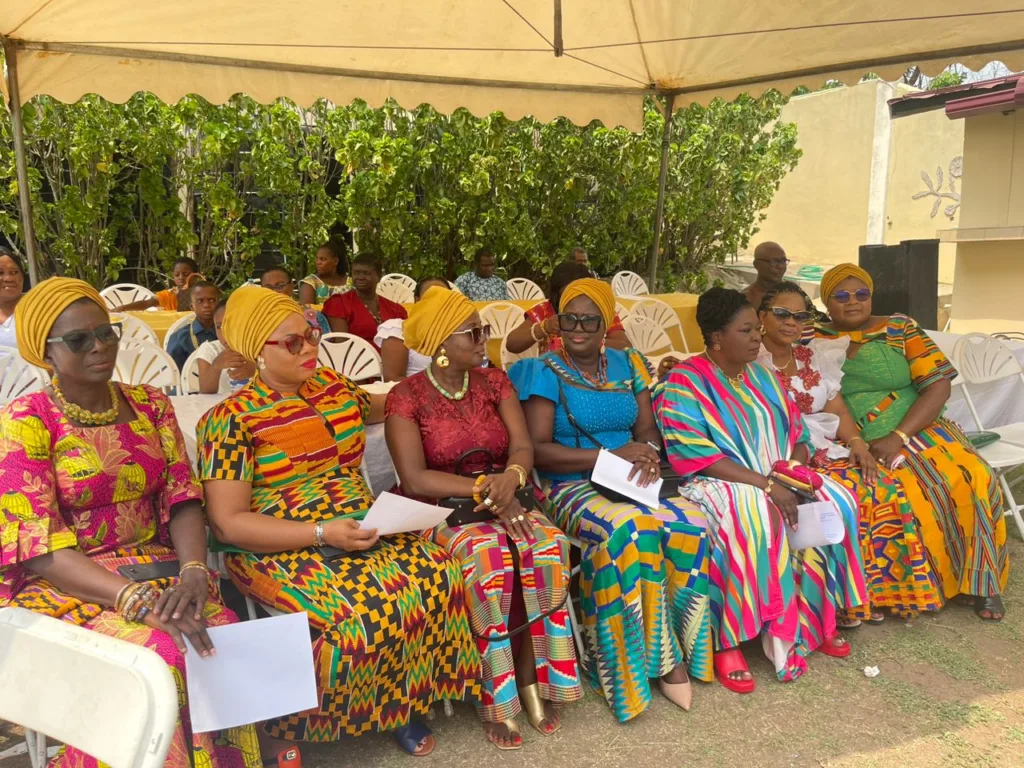
The ceremony also coincided with the 30 years anniversary of the death of Torgbe Abutia Kodzo XVI (ex-President of the Volta Regional House of Chiefs) who happened to be her father.
Mama Woe-Nanyo I promised to adhere to the promise and expectations her clan has in her and not depart from the honour and respect her father radiated during his reign.

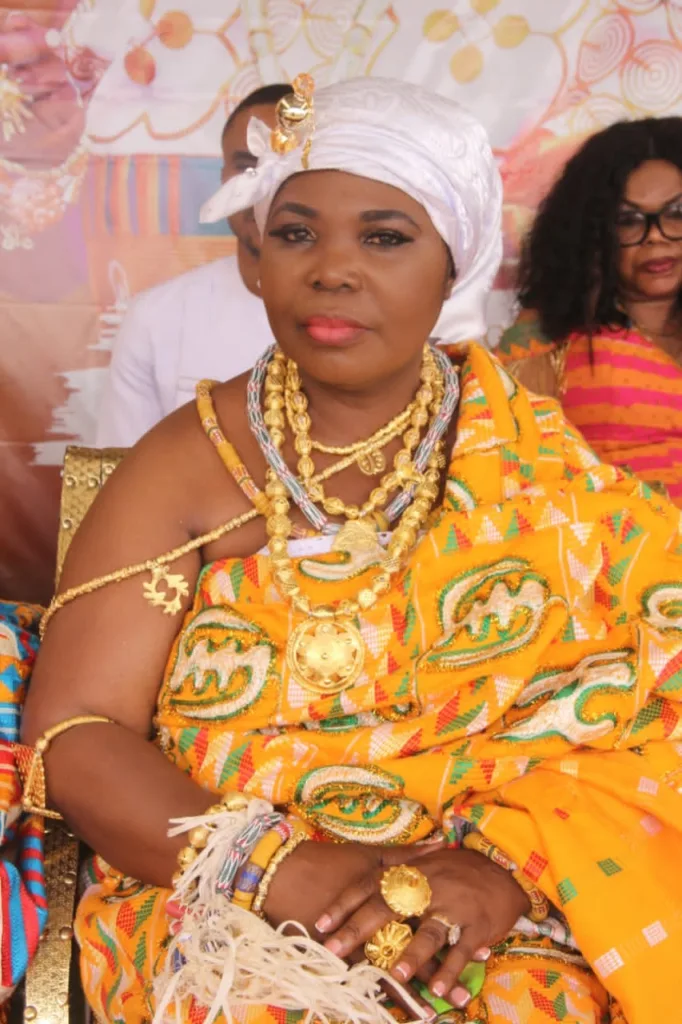
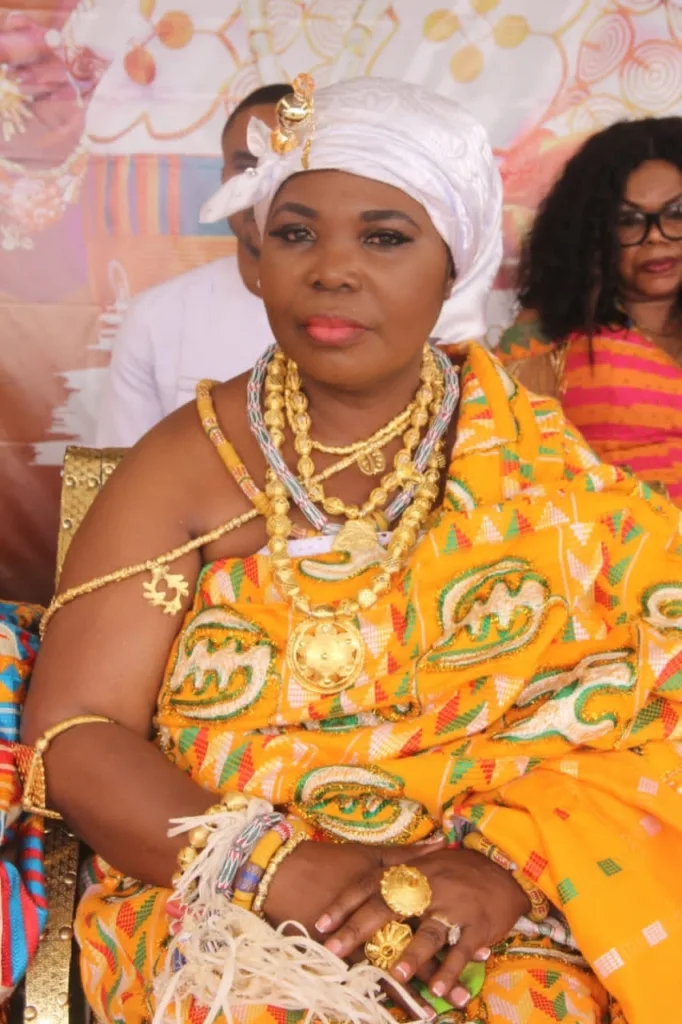
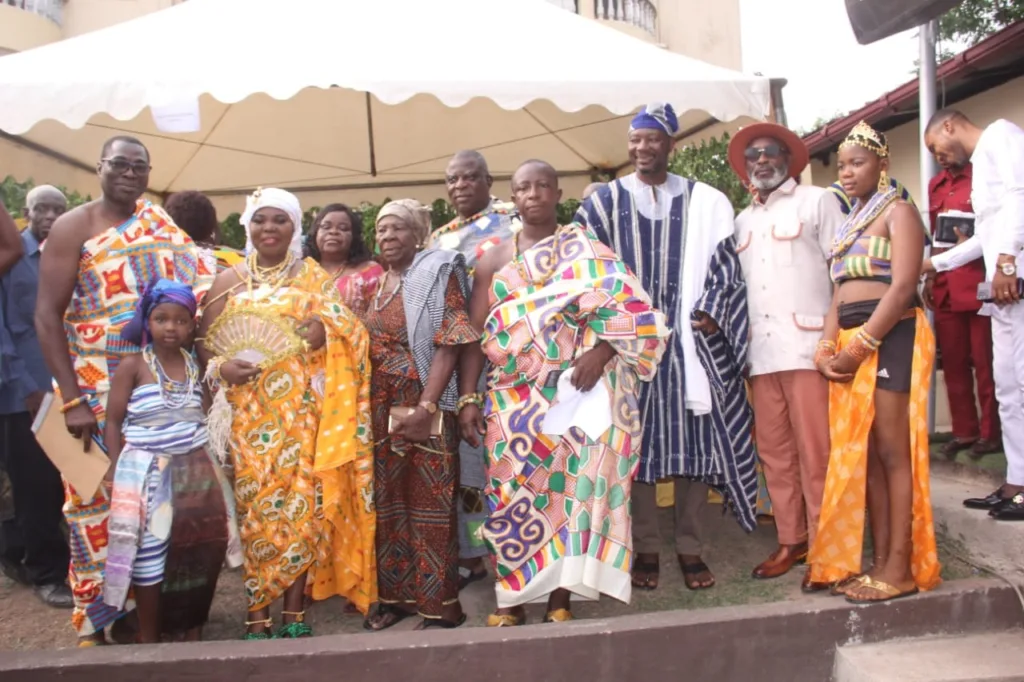

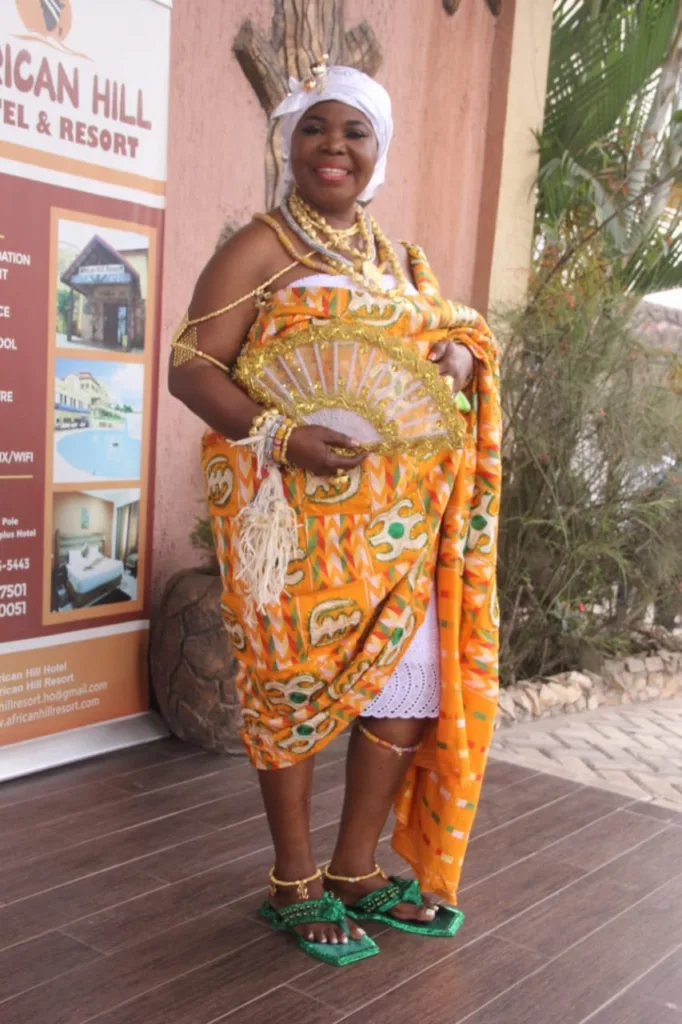
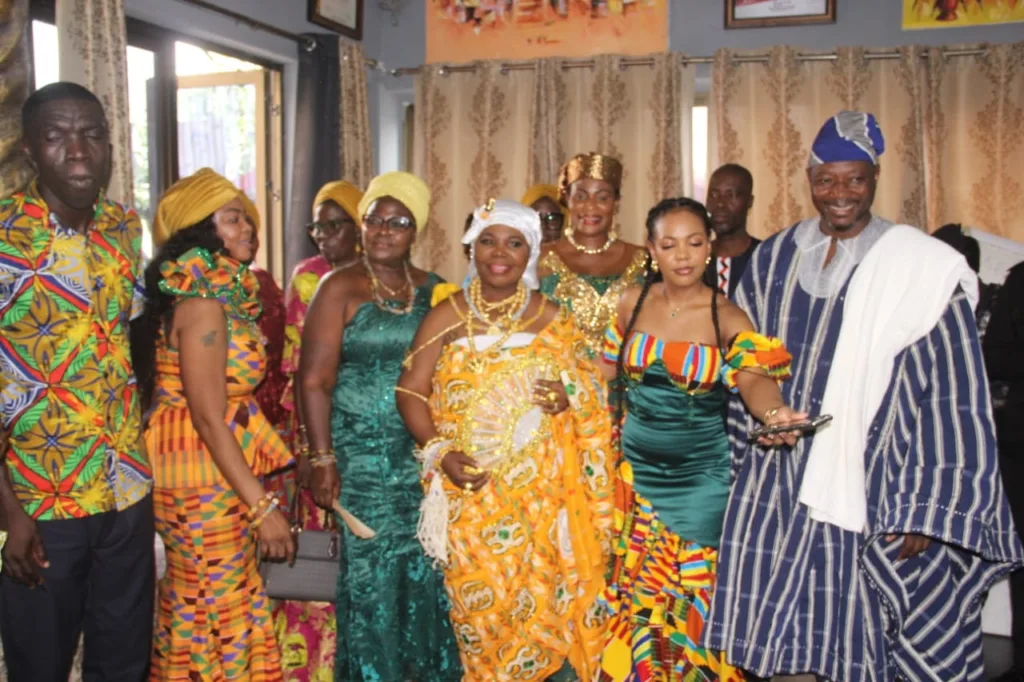
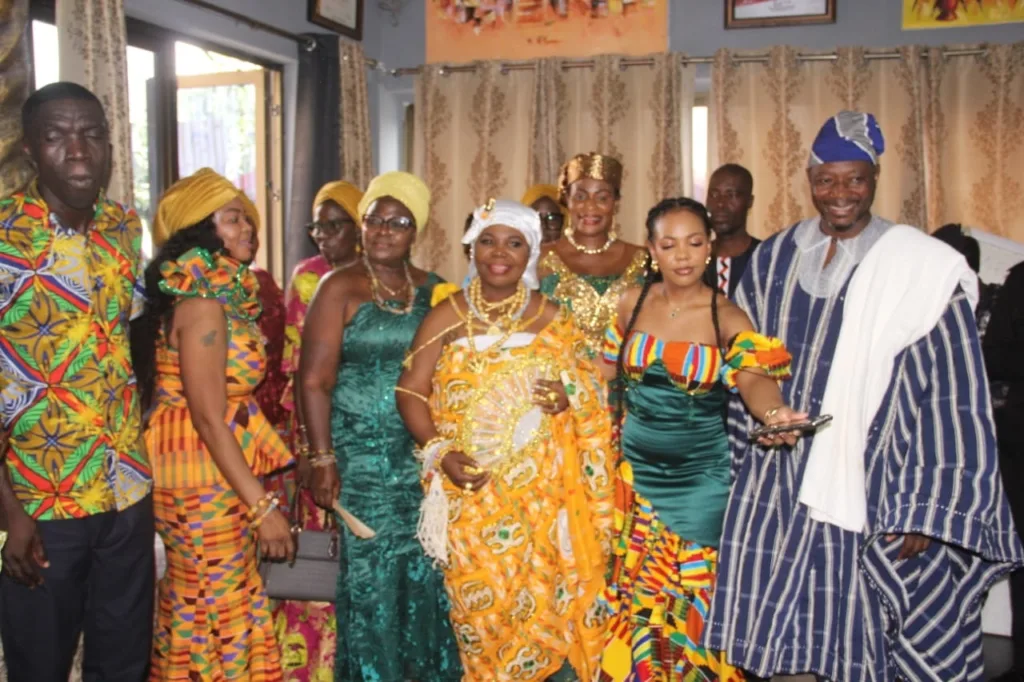
She called for the various clans of Abutia-Kloe to come together for the rapid development of Kloe and the Abutia Traditional Council.
News
The Golden Gift of the Savannah: The untold story of Shea Nut and Shea Butter
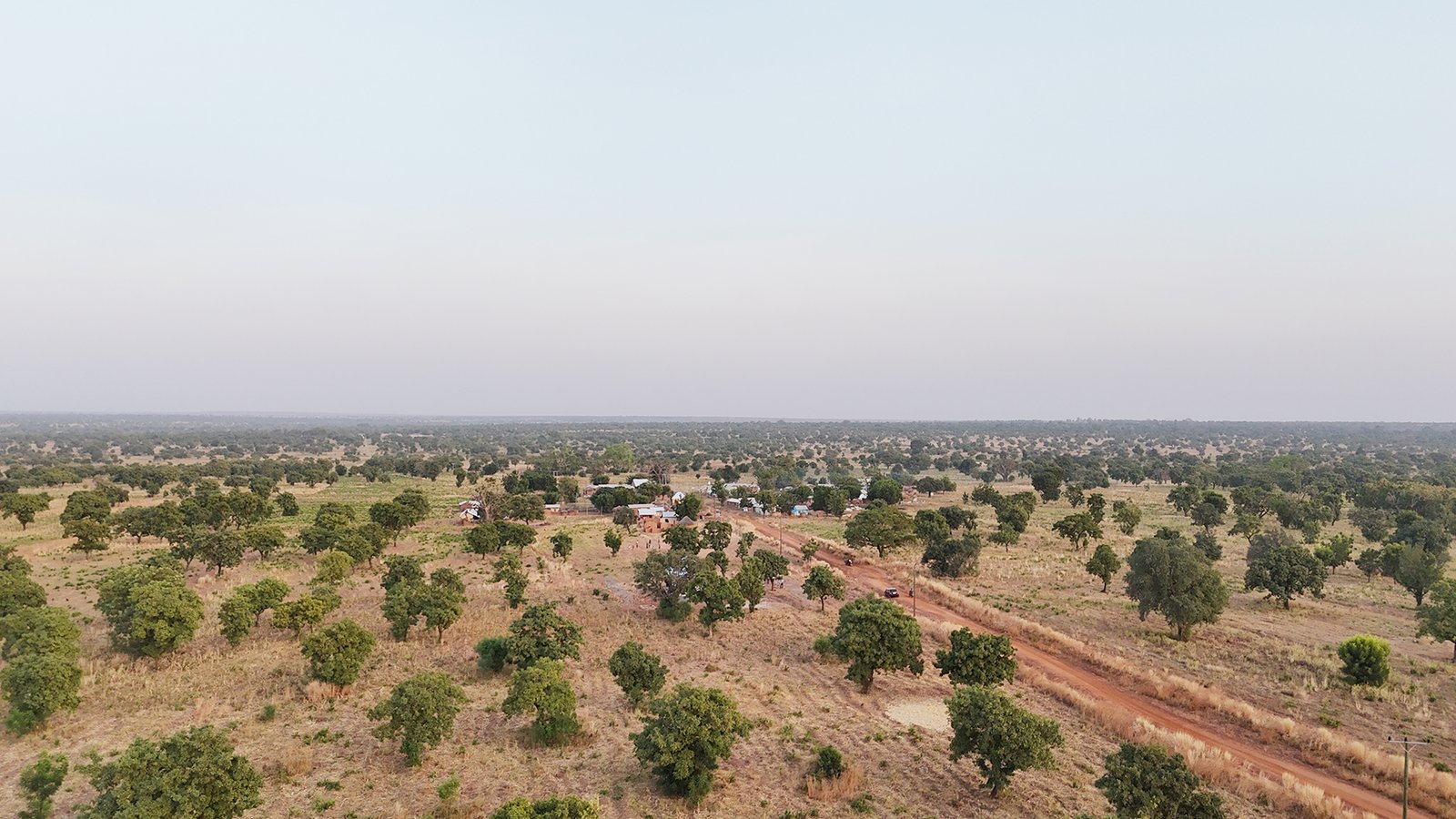
In the vast Savannah of Northern Ghana, where the sun ‘kisses’ the earth stands a tree revered for its economic and cultural significance – the shea tree.
For centuries, the shea nut plucked from this resilient tree, has been the lifeblood of countless women and communities, shaping economies, traditions, and futures across the northern regions of Ghana.
To many women, shea butter is not merely an ingredient in cosmetics and skincare.
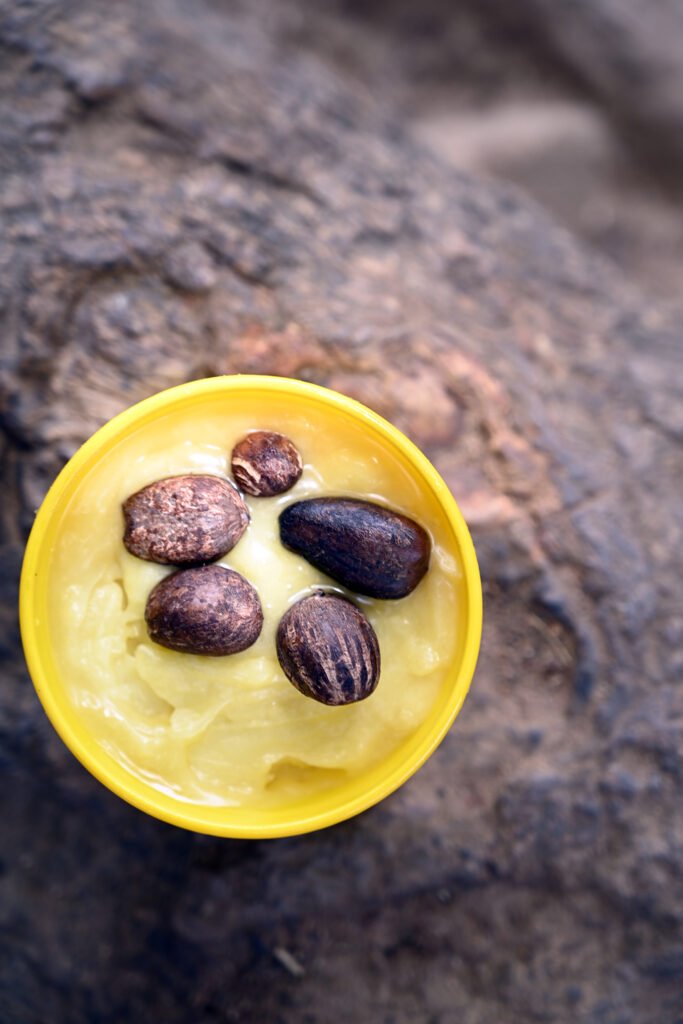
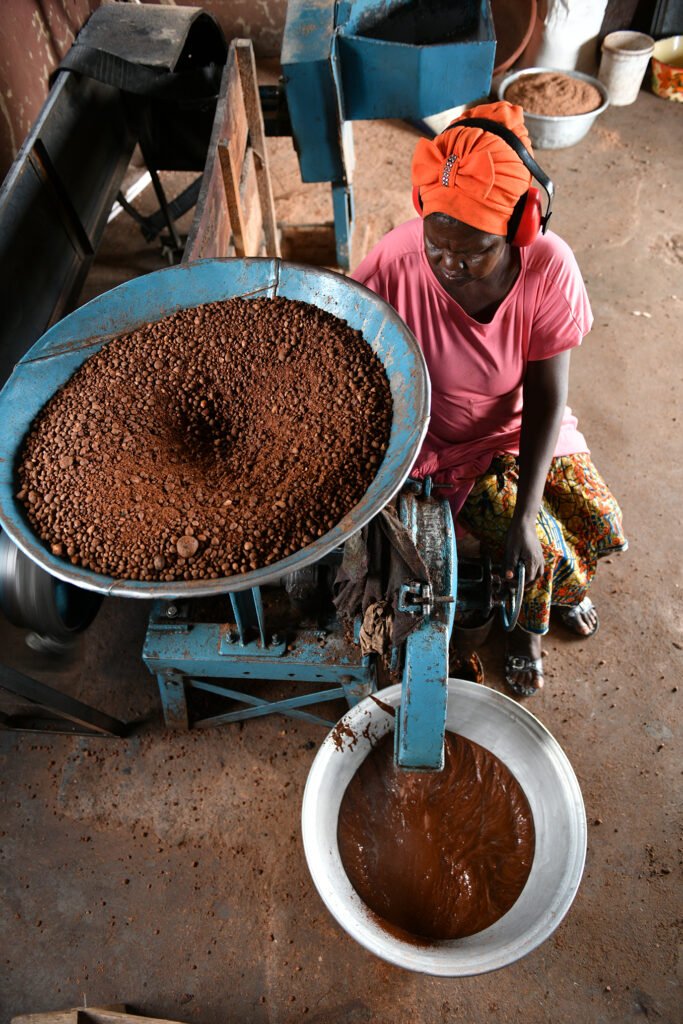
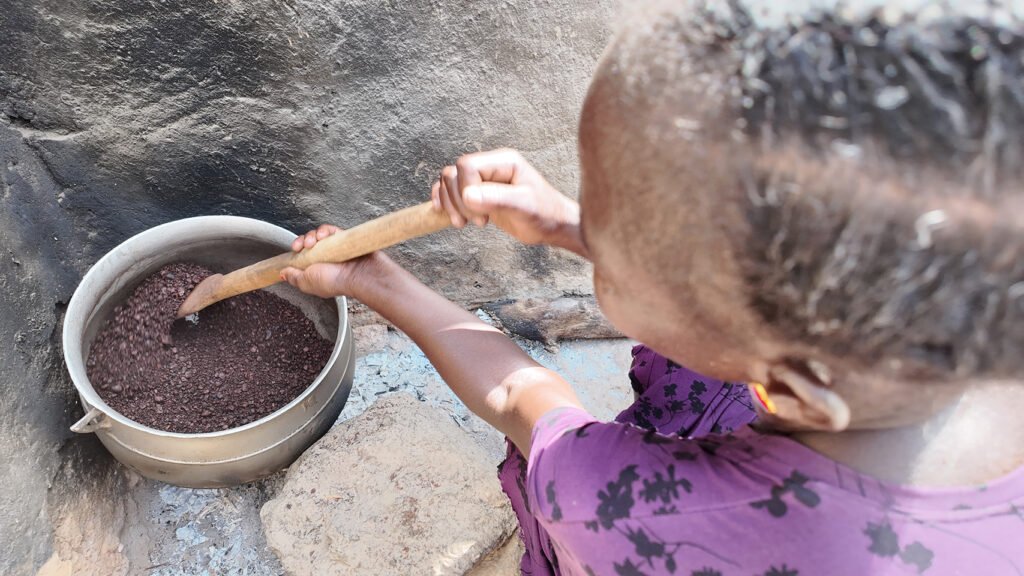
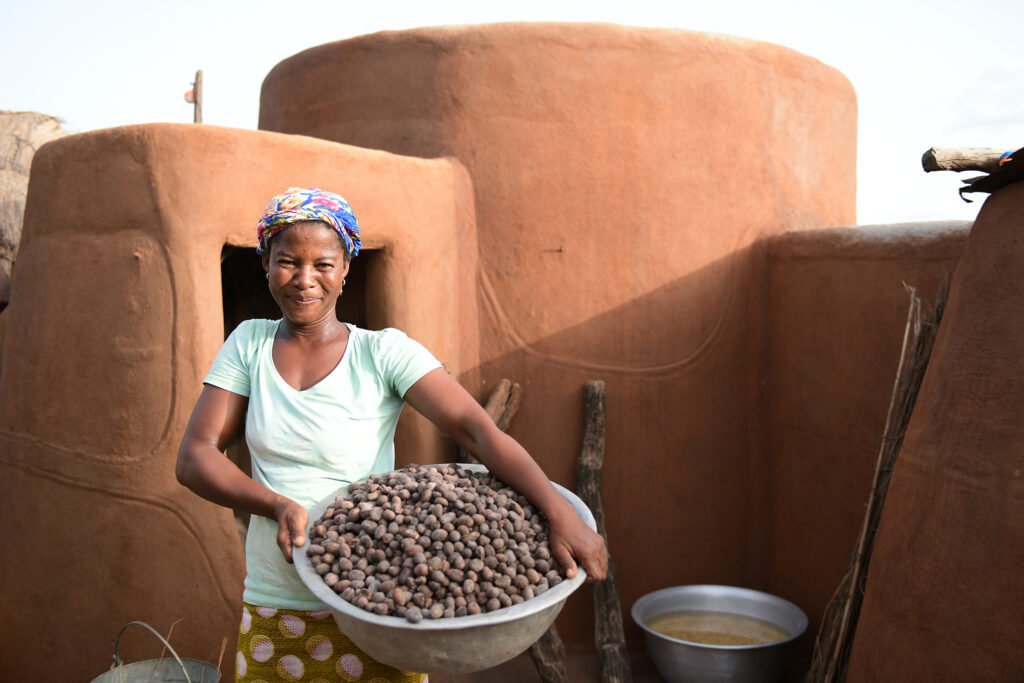
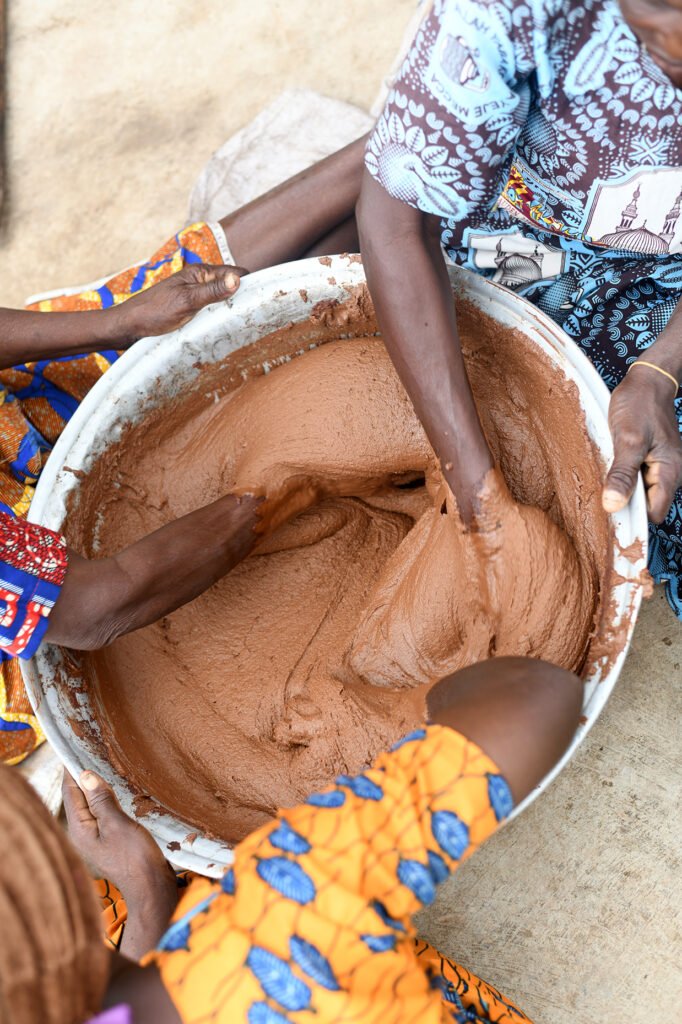
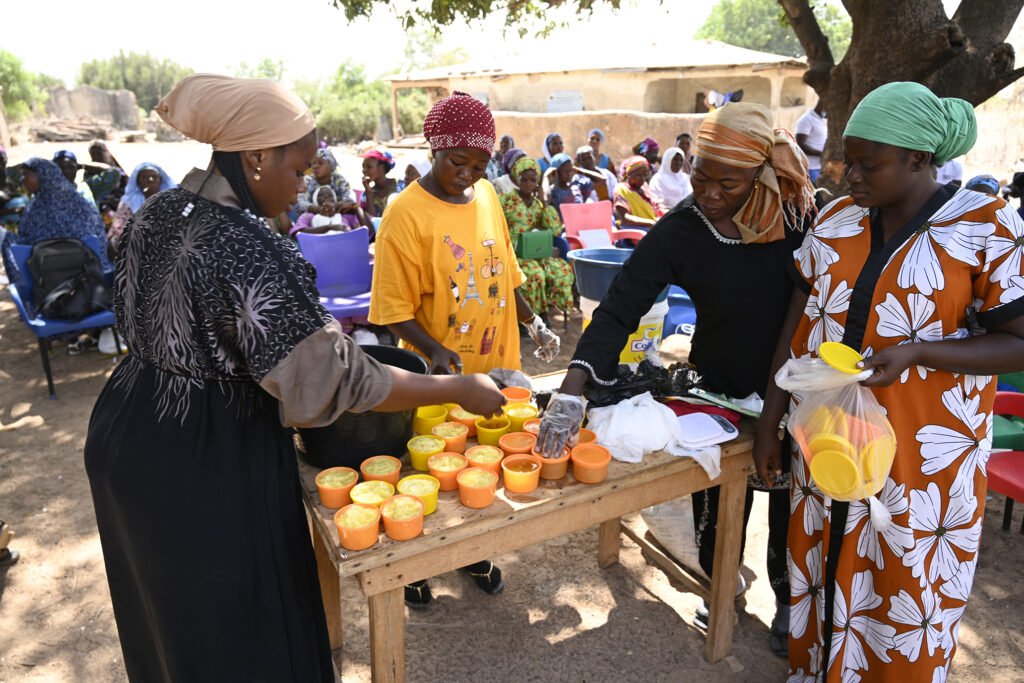
It is a symbol of resilience and economic empowerment. This golden treasure provides a sustainable income for women who painstakingly gather, dry, and process the nuts into a rich butter renowned worldwide for its healing and moisturizing properties.
Beyond its nuts, the shea tree produces a sweet, edible fruit packed with vitamins and nutrients. Its pulp is an excellent source of vitamin C, fiber, and antioxidants, which boost immunity, aid digestion, and promote overall health.
The fruit, often consumed fresh, serves as an essential source of nourishment for rural communities.
However, the journey from shea nut to shea butter is a laborious process requiring skill, patience, and sheer determination.
Women venture into the wild, walk long distances to collect fallen shea nuts.
After gathering, the nuts are boiled, sun-dried, and cracked open to reveal the kernels. These kernels are then roasted, grinded, and kneaded by hand until the oil separates from the solids, forming the smooth, fragrant butter which is now a staple in beauty and pharmaceutical industries, globally.
Shea butter is not the only valuable product derived from this remarkable tree. The shea nut also yields a highly nutritious cooking oil used traditionally in West African cuisine.
Rich in healthy fats, it promotes heart health and serves as a healthier alternative to palm oil and other cooking oils.
As global interest in natural and sustainable products grows, the demand for shea butter has surged.
Major cosmetic brands have embraced it as a key ingredient in lotions, hair products, and medicinal ointments, thanks to its high concentrations of vitamins A and E and anti-inflammatory properties.
Additionally, the food industry now recognises shea butter as a viable alternative to cocoa butter in chocolate production, further expanding its market value.
Yet, despite its growing international appeal, the shea industry faces significant challenges.
Climate change threatens the sustainability of shea trees, while middlemen and unfair pricing structures often limit the earnings of the women who produce the butter.
However, initiatives promoting fair trade, value addition, and sustainable harvesting practices offer hope for better economic returns for shea producers.
Organisations and cooperatives are working tirelessly to protect the shea tree and enhance the livelihoods of shea butter producers.
By introducing modern processing techniques, offering training programmes, and securing fair trade agreements, these efforts are ensuring that the legacy of shea butter continues to benefit local communities for generations to come.
Maria Johana Yuorpor, one of the women leading this transformation is a dedicated shea butter processor. For over a decade, she has championed quality production while equipping women with the skills to refine and add value to this ‘women’s gold.’
Maria’s journey into the shea butter industry was not one of mere chance but of deep-rooted passion and an unyielding commitment to uplift her community.
Growing up in a region where shea butter was a staple in homes used for cooking, skincare, and medicinal purposes, she witnessed firsthand its potential as a tool for economic empowerment.
Determined to make a difference, she immersed herself in intensive research and training, perfecting her craft to meet international standards.
Over the years, her expertise and commitment to quality production have earned her local and international recognition, shining a spotlight on Upper West shea butter.
According to Maria, the best shea butter comes from the Upper West Region due to the naturally rich and unpolluted environment in which shea trees flourish.
“The climate and soil here give our shea nuts a unique richness, which translates into high-quality butter with superior texture and moisturizing properties as well as the best way of processing it,” she explains.
Maria said, said when she begun understanding the importance of value addition, she started training women in her community on advanced processing techniques, including refining, packaging, and product diversification.
“Today, many of my trainees have expanded beyond producing raw shea butter to crafting soaps, body creams, and essential oils, all tailored for export markets”, she added.
To further enhance the shea industry and support women entrepreneurs, the Kosmos Innovation Center (KIC) among many organisations has stepped in with training and funding opportunities.
Mrs. Mercy Tuffour, Gender and Safeguarding Specialist in an interview said, KIC through their initiatives were training women on modern techniques in product formulation, branding, and market access, allowing them to elevate their shea-based businesses.
She emphasised the significance of these interventions: “We are committed to equipping women with the skills and resources needed to create high quality shea products that can compete in both local and international markets.
By adding value to raw shea butter, these women are transforming their livelihoods and securing better financial futures, where Northern Ghana becomes the hub of premium shea butter exports, driven by women entrepreneurs, she added.
She also advocated increased investment in shea butter processing facilities and seeks partnerships with global skincare and cosmetic brands to highlight Ghana’s superior shea butter.
As Maria Johana Yuorpor continues her mission, her story serves as an inspiration to many – proof that with passion, knowledge, and resilience, local resources can be transformed into global opportunities, changing lives one shea nut at a time.
Story/Photos from Geoffrey Buta, Nyoli, Upper West







